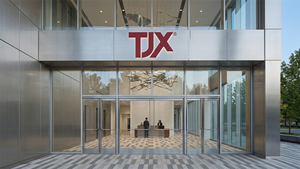Alternative fuel vehicles now represent nearly 16% of new vehicle financing; banks originated more than 55% of new alternative fuel vehicle loans
With electric vehicles growing in availability and popularity, the percentage of those vehicles being financed is growing at a rapid pace, according to Experian’s State of the Automotive Finance Market: Q4 2021 report. Electric vehicles (EVs) comprised 4.56% of new vehicle financing, up from 2.25% in Q4 2020 and 1.34% in Q4 2019. While gasoline vehicles continue to dominate new vehicle financing, there has been growth in multiple alternative fuel vehicle segments, which comprised 15.91% of new vehicle financing in Q4 2021, up from 11.8% in Q4 2020. This includes electric plug-in/gas, flex fuel, and hybrids, in addition to EVs.
Focusing on EV financing, the data shows consumers are more likely to purchase a new EV than lease it, with 72.3% of new EV financing being loans, with the remaining 27.7% being leases. The majority of new EV financing is originated by banks (55.72%), followed by captives (29.81%) and credit unions (12.14%). The average monthly payment for a new EV was $774 in Q4 2021, which is a slight uptick from Q4 2020, when it was $738.
“The exponential growth in electric vehicle financing shows us just how prominent this fuel type is becoming, bringing additional context to the industry buzz,” said Melinda Zabritski, Experian’s senior director of automotive financial solutions. “Understanding the landscape of financing will be helpful for lenders and dealers to understand consumer preferences and make informed decisions as more models continue to be introduced.”
Two Tesla models made up the most financed new EVs in Q4 2021: the Tesla Model 3 at 36.62% and the Tesla Model Y at 34.18%. Rounding out the top five were the Ford Mustang Mach-E at 6.02%, the Tesla Model S at 5.3% and the Volkswagen ID.4 at 3.4%.
Overall vehicle financing continues to see sharp increases
Vehicle financing continues to reflect the impacts of the chip shortage, most notably, in sharp increases in average loan amounts and monthly payments. The average new vehicle loan amount increased 12% year-over-year, from $35,421 in Q4 2020 to $39,721 in Q4 2021. Used vehicle loans saw a more notable increase, jumping 20% year-over-year, from $22,630 to $27,291.
These increases were reflected in the average monthly payments as well. In Q4 2021, the average monthly payment for new vehicles reached $644, while the average used vehicle monthly payment jumped to $488, up from $579 and $417 a year ago, respectively. In addition to the chip shortage, another driving factor of these increases is consumers continuing to select larger vehicles, such as SUVs, which are more expensive. In Q4 2021, 59.43% of all new vehicle financing was for SUVs and Wagons. The shift to larger vehicles over the past few years has a trickle-down effect, as many of these larger vehicles are now reentering the market as used vehicles.
Delinquency rates saw a slight uptick in Q4 2021, as 30-day delinquencies increased from 1.81% to 1.86% from Q4 2020 to Q4 2021, while 60-day delinquencies increased from 0.64% to 0.66% in the same time frame. For fuller context of how the market is performing, the data shows that these rates are still lower than those of Q4 2019, when 30- and 60-day delinquencies were 2.42% and 0.83%, respectively.
“The increases we see in delinquencies are slight, so it’s important to consider that this is another sign that the market is continuing to return to pre-pandemic trends. However, the rates are still significantly under those of 2019, which is a positive sign, overall,” Zabritski continued. “Especially with the increases in average vehicle loan amounts and monthly payments we’ve seen over the last few quarters, this will be an important metric to monitor in the quarters to come.”
Additional findings for Q4 2021:
- Used vehicle financing made up a larger segment of vehicle financing as a whole, at 58.66% of financing in Q4 2021, up from 55.2% in Q4 2020.
- Banks increased share of financing year-over-year, making up 31.84% of all vehicle financing in Q4 2021, up from 29.73% in Q4 2020
- The Honda Civic was the top leased vehicle in Q4 2021 at 2.85%, followed by the Honda CRV (2.37%), and the Mazda CX-5 (1.92%)
- Prime and super prime consumers are beginning to shift back to purchasing used vehicles, with 63.39% of prime and 46.76% of super prime consumers selecting used, up from 60.46% and 44.02%, respectively, in Q4 2020.
- The average term for used loans saw a sharp increase year-over-year, growing from 65.66 months in Q4 2020 to 67.36 months in Q4 2021.
To learn more, watch the entire State of the Automotive Finance Market: Q4 2021 webinar.
About Experian
Experian is the world’s leading global information services company. During life’s big moments – from buying a home or a car, to sending a child to college, to growing a business by connecting with new customers – we empower consumers and our clients to manage their data with confidence. We help individuals to take financial control and access financial services, businesses to make smarter decisions and thrive, lenders to lend more responsibly, and organizations to prevent identity fraud and crime.
We have 20,000 people operating across 44 countries and every day we’re investing in new technologies, talented people, and innovation to help all our clients maximize every opportunity. We are listed on the London Stock Exchange (EXPN) and are a constituent of the FTSE 100 Index.
Learn more at www.experianplc.com or visit our global content hub at our global news blog for the latest news and insights from the Group.
Experian and the Experian marks used herein are trademarks or registered trademarks of Experian and its affiliates. Other product and company names mentioned herein are the property of their respective owners.
View source version on businesswire.com: https://www.businesswire.com/news/home/20220224005268/en/
Contacts
Jordan Takeyama
Experian Public Relations
1 714 830 7561
jordan.takeyama@experian.com





